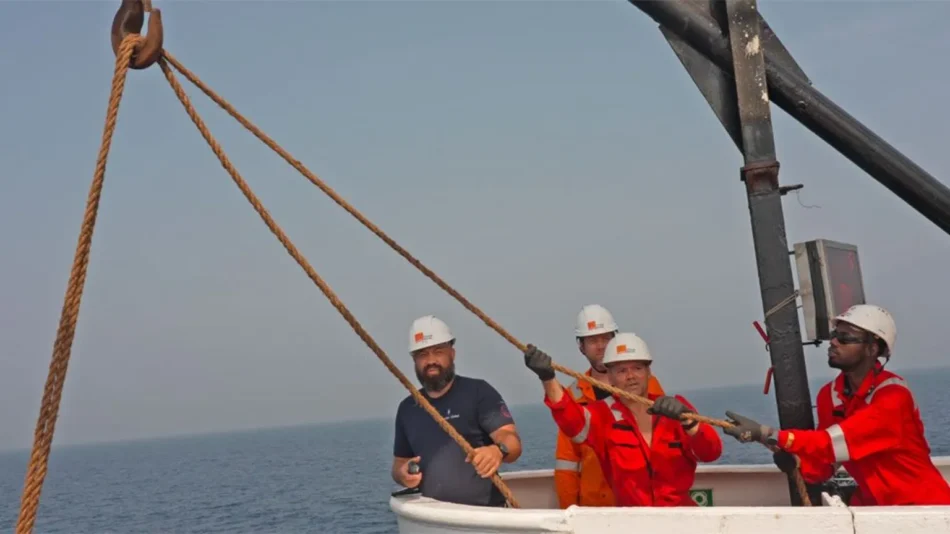The ‘hero’ ship fixing Africa’s internet blackouts – the BBC goes aboard
By Daniel DadzienBBC News, Accra

IMAGE: BBC
A ship the size of a football field, crewed by more than 50 engineers and technicians, cruises the oceans around Africa to keep the continent online.
It provides a vital service, as last year’s internet blackout showed when internet cables buried deep under the sea were damaged.
Millions from Lagos to Nairobi were plunged into digital darkness: messaging apps crashed and banking transactions failed. It left businesses and individuals struggling.
It was the Léon Thévenin which fixed the multiple cable failures. The ship, where a BBC team recently spent a week on board off the coast of Ghana, has been doing this specialised repair work for the last 13 years
“Because of me, countries stay connected,” Shuru Arendse, a cable jointer from South Africa who has been working on the ship for more than a decade, tells the BBC.
BBC
“You have heroes that save lives – I’m a hero because I save communication” Shuru Arendse
A cable jointer aboard the Léon Thévenin
“IT people at home have work because I bring the main feed in,” he says.
“You have heroes that save lives – I’m a hero because I save communication.”
His pride and passion reflect the sentiment of the skilled crew on the Léon Thévenin, which stands eight floors high and carries an assortment of equipment.
The internet is a network of computers servers – to read this article it is likely that at least one of 600 fibre optic cables across the world collected the data to present it on your screen.
Most of these servers are in data centres outside of Africa and the fibre optic cables run along the ocean floor linking them to coastal cities on the continent.
Data travels through hair-thin fibreglass wires, often grouped in pairs and protected by different layers of plastic and copper depending on how close the cables are to the shore.
“As long as the servers aren’t in the country, you need a connection. A cable runs from one country to the next, linking users to servers that store their data – whether it’s accessing Facebook or any other online service,” says Benjamin Smith, the Léon Thévenin’s deputy chief of mission.
To read the whole article go to https://www.bbc.com/news/articles/cx2eyqz49v5o





